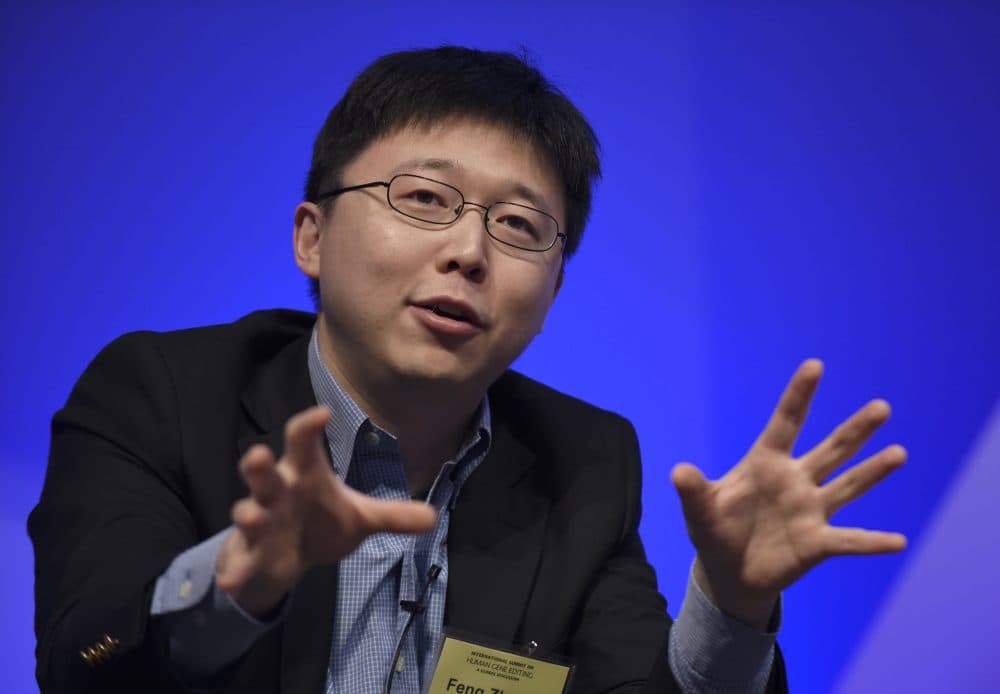Advertisement
In Battle Over CRISPR Patents, Court Grants MIT And Harvard A Legal Victory Over UC Berkeley

The Broad Institute of MIT and Harvard has won a long-fought legal battle with the University of California over patents it holds linked to gene-editing technology.
The University of California contended that patented research by Broad was such an "obvious" extension of previous research by Berkeley that Broad should not have received its patents. A federal appeals court in the District of Columbia disagreed, ruling Monday that Broad's work was sufficiently original.
The dispute centered on research into a gene-editing technique known as Clustered Regularly Interspaced Short Palindromic Repeats, or CRISPR for short. Berkeley researchers led by Jennifer Doudna published a 2012 paper in which they demonstrated CRISPR's ability to edit DNA outside of cells, in test tubes. Broad researchers led by Feng Zhang then published a 2013 paper showing success with the same technique in human cells.
Broad subsequently received a dozen patents related to its work. The University of California appealed those patent awards to the U.S. Patent and Trademark Office, arguing that Zhang's research was an "obvious" continuation of Doudna's and therefore not patentable.
The patent office sided with Broad last year; Monday's court ruling upheld the patent office's decision.
"The Federal Circuit made the correct decision in upholding the United States Patent Trial and Appeal Board’s ruling," Broad Institute said in a statement. "The patents and applications of Broad Institute and UCB are about different subjects and do not interfere with each other. ... It is time for all institutions to move beyond litigation. We should work together to ensure wide, open access to this transformative technology."
In the court's opinion, Judge Kimberly Moore explained that "an obviousness determination requires finding that a person of ordinary skill in the art would have been motivated to combine or modify the teachings in the prior art and would have had a reasonable expectation of success in doing so."
The court determined that Broad's advancement of Berkeley's research was no easy feat, pointing to published remarks in which Doudna herself acknowledged "many frustrations" with getting CRISPR gene-editing to work in human cells. Doudna added that doing so would represent a "profound discovery."
